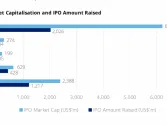
Why Islamic trade finance will be the preferred choice in emerging markets
Expect an alteration in the global trade scene, says analyst.
According to Ernst & Young’s Global Islamic Banking Center, Islamic trade finance could provide new opportunities and become the preferred choice for emerging rapid growth markets (RGMs) such as Turkey, Indonesia, Malaysia, Qatar, Saudi Arabia and the UAE.
RGMs are emerging as hot spots for global business and they promise to permanently alter the global trade scene over the next 10 years.
Many of these markets already have strong trade links with other “core” Islamic finance markets, which offer new opportunities for growth for Islamic trade finance.
Ashar Nazim, Partner, Global Islamic Banking Center of Excellence at Ernst & Young says: “The increase of trade flows to the East and within emerging economies combined with growing interest in Islamic finance, means that Islamic trade finance is now a serious alternative.
A constant challenge for business leaders is to anticipate and interpret how global trade is changing, while understanding the opportunities and risks it creates. Boards and management of Islamic banks must take note.
Trade, technology, culture, labor and capital will integrate at different rates across these markets and need to be anticipated when transforming the financial institution’s trade finance operations.”
RGMs are now an increasingly significant part of the global economy. They will become an even more dominant force in global trade and as a result, businesses are going to have to adjust their strategies to reflect the increasingly regional pattern of world trade and in this context should now start to consider Islamic trade finance.
Gordon Bennie, Ernst & Young’s Middle East and North Africa (MENA) Financial Services Industry Leader, says: “Trade will grow between these markets, creating a wide range of new opportunities for them and advanced economies will also benefit, as exports to emerging markets become a rising source of growth.
Middle Eastern countries are trading increasingly with other RGMs, reflecting the faster growth in demand from these countries. Banking, insurance and other financial services sectors in these countries will grow as the economies mature and the middle classes expand, offering new opportunities for trade. Demand for more sophisticated financial services is already growing rapidly as wealth levels rise.”
The degree of change in both the scale and direction of trade will have a profound impact on the competitive environment for all companies wherever they are located around the world. Trade will also be increasingly focused around Asia, the Middle East and Africa, suggesting that the key geographical location for companies will change.
Ashar added: “It makes business sense for global organizations that operate in and trade with many of these RGMs, especially those that are in the Organization of Islamic Cooperation or have strong links to the bloc, to seriously look at Islamic trade finance.”
















